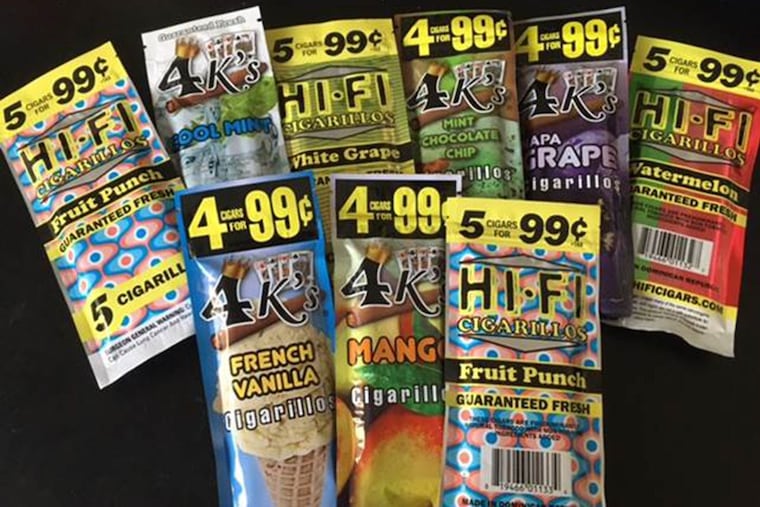Racist tobacco industry lawsuit hurts Philadelphia’s kids of color most of all | Opinion
Flavored tobacco makers are suing the city over efforts to protect young people, especially those of color, from their deadly and addictive products.

I can vividly recall a presentation to fourth-grade students at a Philadelphia school when I held up a brightly colored package of flavored cigarillos in front of the class and asked the students what it looked like. They all replied that the package of cigarillos “looks like candy.”
In December 2019, Philadelphia City Council joined numerous other states and localities across the nation to pass an important law to restrict the sale of flavored cigars and other tobacco products in Philadelphia to specialty tobacco shops that do not allow minors to enter. This legislation had broad, bipartisan support from City Council members and a diverse community coalition to protect Philadelphia youth and young adults from harmful tobacco products.
» READ MORE: Philly restrictions on flavored e-cigarettes signed into law by Mayor Kenney
These products — with flavors like “Fruit Punch,” “Brownie,” and “Mint Chocolate Chip” — are made for kids in an effort to turn them into lifelong tobacco addicts, numerous studies have documented. The same chemical flavors used in Jolly Ranchers, Kool-Aid, and Life Savers also find their way into cigarillos, the cheap little cigars many kids in Philadelphia’s poorer neighborhoods favor.
That’s no accident: The industry also has aggressively targeted the marketing of these products to low-income communities and communities of color.
This summer, while the city was grappling with the COVID-19 epidemic — which, incidentally, disproportionately affects the same communities the tobacco industry targets — the industry and its representatives had other priorities. They sued the City of Philadelphia and the commissioner of the Philadelphia Department of Public Health over our efforts to protect our youth and young adults, especially those of color, from their deadly and addictive products.
Let’s be clear: The aim of this lawsuit is to repeal this law and restock the shelves of stores visited by children and young adults with these fruit- and candy-flavored tobacco products. This aim is complicit with actions of other racist systems which have disproportionately harmed, and profited from, communities of color. It is oblivious to the unified voices that are demanding racial justice in our city and across the country. The actions of the tobacco industry are the actions of a racist institution and demonstrate a complete disregard for Black and brown Philadelphians in the interests of maintaining their profits.
At a recent Health Department press conference about the lawsuit, Temple University student Aiden Gibbs drew a straight line between the tobacco industry and the pain of neighborhoods like his in West Philadelphia. “Big Tobacco picks now, during a civil rights movement, to sue Philadelphia to be allowed to put products back in Black neighborhoods,” he said. “Youth and young adults across Philadelphia are demanding that the people in power uphold these protections against these predators. We are not your target.”
Given the growing body of evidence that tobacco use seriously worsens the risks from COVID-19, this is an important moment for this city to reduce access to tobacco products and promote quitting.
These widely supported laws must remain intact to protect the most vulnerable youth and young adults of our city from products painstakingly designed to lure them into a lifetime of addiction, illness, and death. This lawsuit demonstrates plainly what we have known for decades. The tobacco industry is a racist institution and the very embodiment of the practice of putting profits over people. This most recent development simply confirms that truth.
Ryan Coffman is the tobacco policy and control program manager for the Philadelphia Department of Public Health.